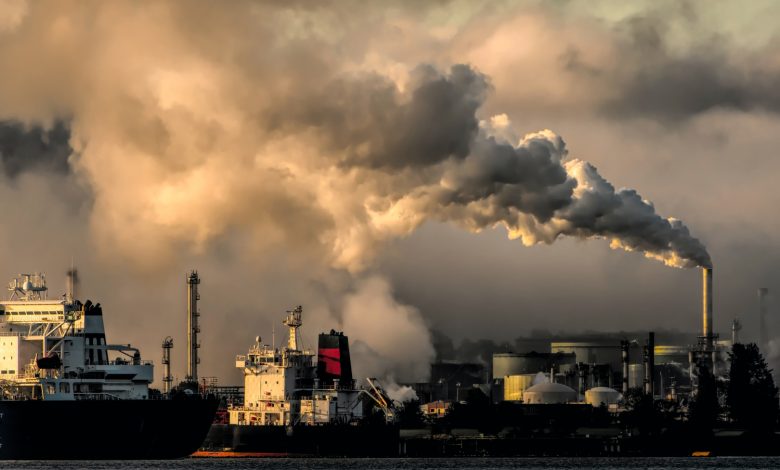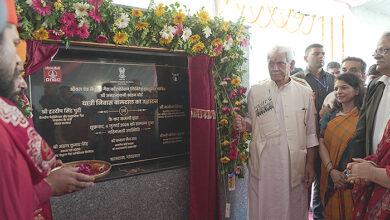Calls For Polluting Nations To Pay Their Share
Extreme weather has caused $41 billion damage since COP28

Extreme weather has caused a minimum of $41 billion damage in the six months since the last major climate conference, according to a new report by international development charity Christian Aid. They say that not enough progress has been made since COP28 in the United Arab Emirates to move away from fossil fuels or to support lower-income countries to cope with climate disasters.
As the climate talks in Bonn begin, these numbers show that the costs of the climate crisis are already here. Negotiators in Bonn are working to establish a “Loss and Damage Fund”, to try and unblock financial flows to lower-income countries hit by extreme weather. This funding was a major sticking point at COP28, with wealthier nations slow to agree to the investments needed.
“Rich countries, responsible for the lion’s share of the greenhouse gases that are heating the atmosphere and fueling extreme events, should recognise their historic responsibility and step up their funding to the Loss and Damage Fund to help other countries cope and recover from extreme weather,” says Christian Aid in the report.
The $41 billion in damage is an underestimate according to the charity. Only insured losses are typically reported, and many of the worst disasters have hit countries where few people or businesses have insurance. The human cost of disasters is also missed in these figures, from those who lost their lives to those whose homes are destroyed, or who lose out on work or education.
● Extreme weather has caused over $41 billion damage in just six months since the last climate COP, according to a new report by Christian Aid.
● Just four extreme weather events in this time – all scientifically shown to have been made more likely and/or more intense by climate change – killed over 2,500 people.
● These fossil-fueled floods and heat waves caused misery for millions of people, many of whom live in countries that have done little to cause climate change.
● The scale of the damage shows that the climate crisis is already here and worsening, says Christian Aid, and that rich nations must step up and pay their fair share into the Loss and Damage Fund currently being negotiated in Bonn and make sure this finance is immediately available.
● Report warns that world leaders must stop all fossil fuel expansion of coal, oil and gas and switch to investing in renewable energy and climate resilience, or the the economic and human cost of extreme weather will worsen dramatically.
Floods in Brazil which killed at least 169 people and did at least $7 billion damage to the economy were made twice as likely by climate change. In south and southwest Asia, flooding which killed at least 214 people and did $850 million in insured damages in the UAE alone was also made more likely by climate change. Simultaneous heat waves in west, south, and southeast Asia killed over 1,500 people in Myanmar alone, with heat deaths notoriously under-reported. The heatwave is expected to slow growth and increase inflation, and in southeast Asia it would have been completely impossible without climate change while in south and west Asia it was made five and 45 times more likely, respectively, and also hotter. Flooding from cyclones in east Africa killed 559 people, and was made about twice as likely and also more intense by climate change.
These extreme events hit two of the three climate “troika” countries – UAE, which hosted the climate COP last year and Brazil, which will host it in 2025. This underlines the urgency of the escalating crisis, with climate change fueled disasters causing devastation before and after climate talks are held in those same countries.
The report explains how climate change is already affecting life at all scales. These floods and heat waves disrupted children’s education, making it harder for many to break out of poverty. They did massive damage to crops and livestock, fueling food insecurity in some places and price inflation in others. Extreme heat and floods compounded existing crises for refugees and those living with conflict and even impacted the world’s biggest democratic occasion as many Indians struggled to vote in dangerous temperatures.
Christian Aid says the solutions to the crisis are clear: governments and development banks must stop new investments in the oil, coal and gas that are fueling these disasters and massively scale up decentralised renewable energy to support clean development.
“We cannot heal the burns caused by the climate crisis while we are still throwing fossil fuels on the fire”, said Mariana Paoli, Christian Aid’s Global Advocacy Lead, who is from Brazil.
“We need rich countries who are largely responsible for causing the climate crisis to massively scale up funding for action on climate change. They need to show real creativity and political will, and tax polluters and the super-rich in order to finance real climate action. We need to cancel historic debt owed to rich countries by poor ones, and instead make sure that that money is used to improve climate equality, to help everyone to be safer from climate disasters.”
The writer of this article is Dr. Seema Javed, an environmentalist & a communications professional in the field of climate and energy




